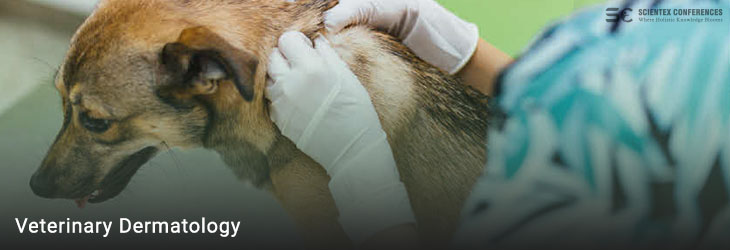Track: Veterinary Dermatology

Veterinary Dermatology is a specialized branch of veterinary medicine focused on diagnosing, treating, and managing skin, coat, nail, and ear conditions in animals. This field plays a crucial role in enhancing the health, comfort, and quality of life for companion animals, livestock, and exotic pets by addressing a wide range of dermatological concerns. Conditions such as allergic reactions, infections, immune-mediated diseases, and parasitic infestations can significantly impact an animal’s overall well-being, making early intervention and specialized care essential.
Allergic Skin Conditions:
Animals commonly suffer from allergies, such as atopic dermatitis, flea allergy dermatitis, and food allergies. These conditions often present with chronic itching, redness, and skin infections. Veterinary dermatologists develop personalized treatment plans that may include immunotherapy, antihistamines, diet modification, and topical care to manage symptoms and improve quality of life.
Staph Infections:
Staphylococcal infections (pyoderma) are frequent in dogs and cats and often occur secondary to underlying issues like allergies or endocrine disorders. These infections can cause hair loss, pustules, and crusting. Accurate diagnosis and appropriate use of antibiotics or topical agents are essential for resolution and recurrence prevention.
Ear Disease:
Otitis externa and otitis media are common in pets and often linked to underlying dermatological conditions. Veterinary dermatologists manage chronic ear infections through deep cleaning, anti-inflammatory treatments, culture-based antibiotics, and allergy testing to prevent relapse and hearing damage.
Fungal Infections:
Dermatophytosis (ringworm) and yeast infections are significant dermatological concerns, particularly in multi-pet households or shelters. These contagious conditions require accurate identification and rigorous treatment protocols, including antifungal medications, environmental decontamination, and sometimes quarantine measures.
Immune-Mediated Disorders:
Autoimmune skin diseases, such as pemphigus foliaceus and lupus erythematosus, involve the immune system attacking the skin. These complex disorders require careful immunosuppressive therapy, regular monitoring, and long-term management to control symptoms and prevent complications.
Scientific Highlights
- Cosmetic & Skin Science
- Dermatology
- Genetic Skin Disorders & Diseases
- Dermato Oncology
- Cosmetic Dermatology
- Plastic Surgery
- Veterinary Dermatology
- Rhinoplasty & Otoplasty
- Oral & Maxillofacial Surgery
- Reconstructive and Aesthetic Surgery
- Cosmetic Dentistry
- Cosmetic Pathology & Skin Diseases
- Cosmetic Gynaecology
- Stem Cell Aesthetic Therapy
- Trichology and Hair Transplant
- Cosmetic Medicine
- Cosmetology in Ayurveda
- Nanotechnology in Cosmetics
- Vitiligo
- Nutrition and Diet for Healthy Skin
- Risk Factors in Cosmetology
- Case Reports in Cosmetic Surgery
- Recent Advancement in Cosmetology
- Pediatric Dermatology


